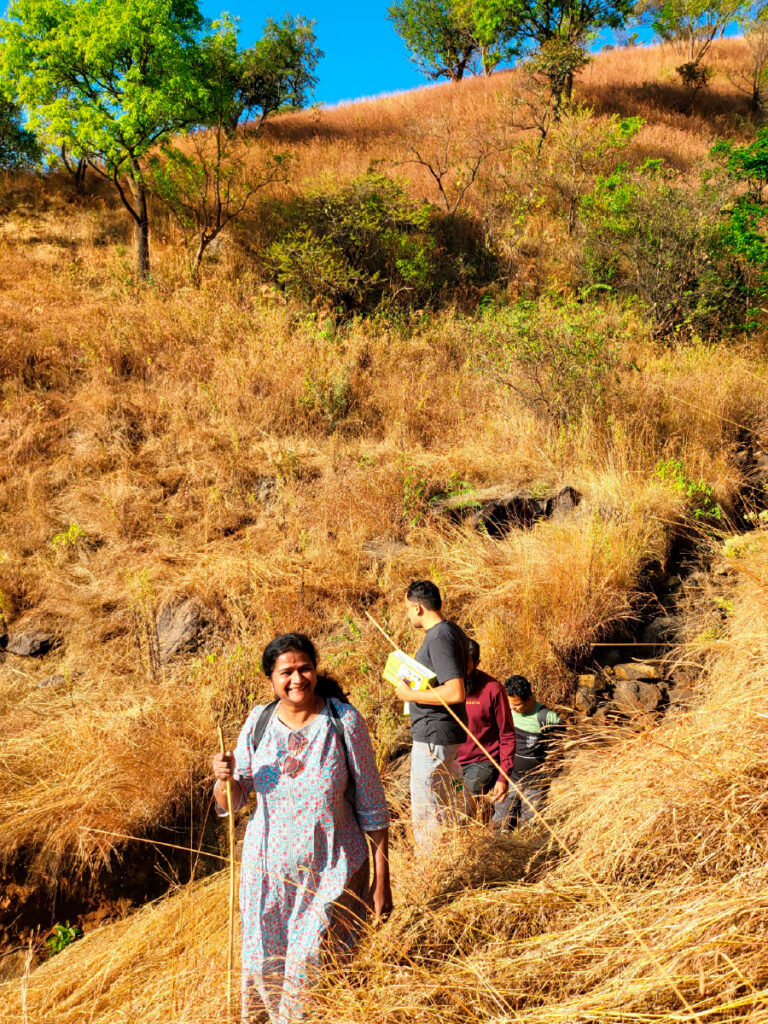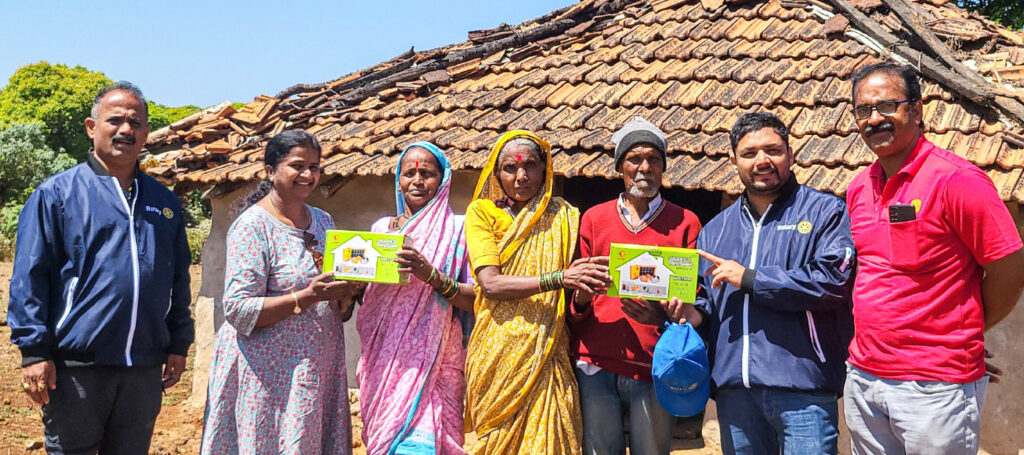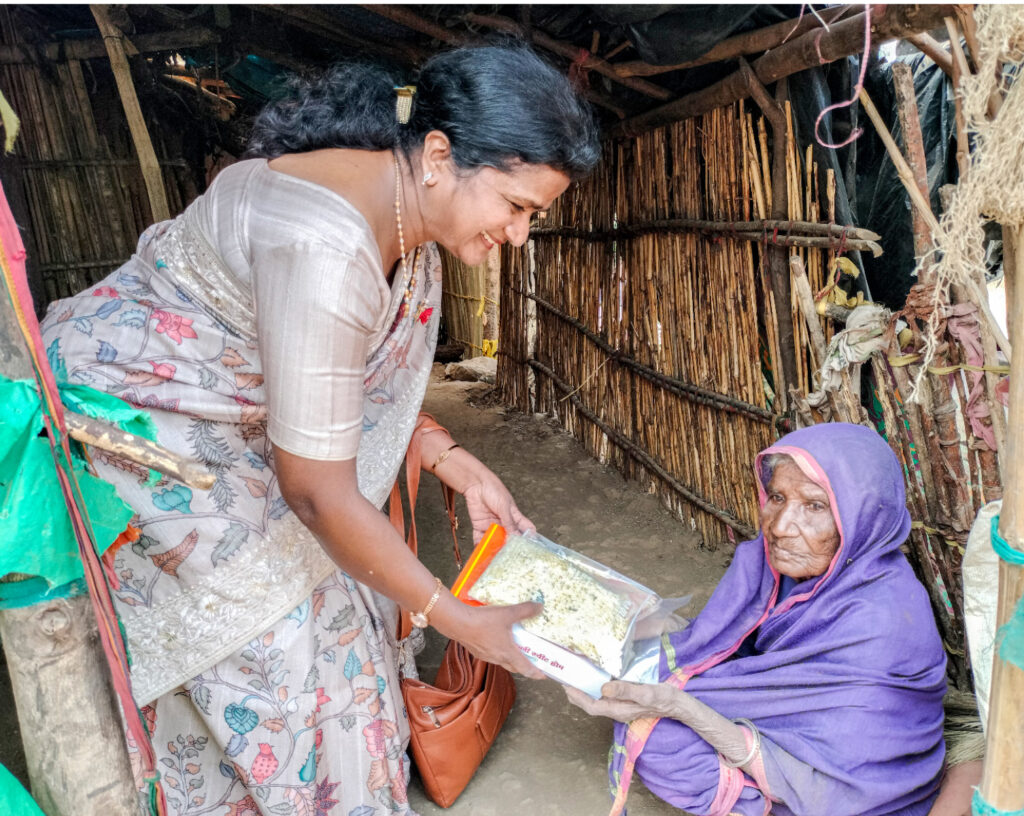Reading a Marathi daily one morning as part of her daily routine, DGE Swati Herkal, RID 3132, was aghast at the hardships faced by the Katkari and Dhangar tribals living in the basti settlements across seven villages at Wai taluk in the Satara district of Maharashtra. As there is no electricity in the tribal communities living on the fringes, “they were constantly haunted by the possible attack of wildlife in late hours. They have to trek down for several kilometres to get their basic needs fulfilled. But they have to return home before dusk as leopards are on the prowl,” she says. She is the chair of Project Surya which has installed 148 solar lamps and street lights at these tribal settlements.


At the board meeting of RC Wai in the first week of January, club president Jitendra Pathak formed a 10-member team led by her to visit the tribal colonies for a first-hand study. “We found that darkness envelops the tribal colonies much earlier. They don’t venture out after 7pm fearing attacks from leopards and can’t sleep peacefully,” recalls Swati. Following the preliminary survey, a five-member project team was formed which made a number of trips to these remote hill areas to monitor the project work.
In the first phase, 72 mud houses and bamboo huts got two solar lamps each, and a solar street light was installed in four colonies. In all, 148 solar appliances costing ₹2.5 lakh were installed. The project was funded through member contributions and a donation of $1,000 from PDG Meena Patel from Ohio, US. “In the next phase, we will install solar lamps in 238 tribal houses, thus covering all settlements in these seven villages, some atop steep mountains,” explains Swati. The tribal clusters are located in Dhom, Malappur, Vaygaon, Borgaon, Koleshwar, Madgani Moora and Kondhavale villages. Each household will have a solar panel with battery on the housetop to charge the solar lamps and a mobile phone charger.
Solar streetlights could not be installed at three clusters as “we could not climb the hill with poles and other accessories. But in the next phase, which will be completed by August, the remaining families will have solar lamps and streetlights will be installed in the left-out colonies,” assures the DGE.
A critical need
Explaining the critical need for solar lamps in tribal villages, club president Pathak says, “the people no longer need to remain indoors after dark. The streetlights keep the villages bright and illuminated and will keep wild animals at bay.” Profusely thanking Rotary, Radha Wadkar (70) at Kondhavale, who is living alone after losing her husband 13 years ago, and depends on a buffalo for income, says “my life has got a spark now with solar lamps. I no longer feel lonely.”

Another beneficiary, Baburao Khutekar (75), living in Koleshwar, says that earlier he had to walk over two-and-half hours downhill to recharge his mobile handset. “But now with the mobile recharger and battery, I don’t need to make that risky trek down and back.” Also, he can now save the money he was spending to buy 15 litres of oil a month for the wick lamps. “Solar lamps have changed my life for the better,” he says.
In different phases of distribution, Rotarians visited five basti settlements to handover the solar lamps to the tribals. In the last leg, seven Rotarians, led by DGE Swati, including her nephew Annet Ved Herkal and six-year-old Annet Om Shinde, son of Rtn Pramod Shinde, trekked over 18km on mountains for 12 hours to give the solar gadgets to beneficiaries at the remaining two clusters. “It was quite an experience for all of us. But we are ready to do more for the villagers,” says Swati.
We found that darkness envelops the tribal colonies much earlier. They don’t venture out after 7pm fearing attacks from leopards and can’t sleep peacefully.
– Swati Herkal, District Governor Elect, RID 3132
School education
During their frequent trips to the villages, the project team found that children were engaged in fishing, and then selling the catch in the markets, instead of going to school. “They are doing it for survival. We are going to talk with the school management in these villages to provide meals thrice a day to tribal children so that they can attend classes and get basic education. Just giving midday meal alone as is being done now is not sufficient,” says the DGE. By expanding the midday meal programme, dropouts can be attracted to schools.
After taking charge as district governor next year, she will ask all clubs in RID 3132 to identify tribal villages in need of solar lamps so that Project Surya can be expanded across western Maharashtra and Marathwada regions, she adds.






